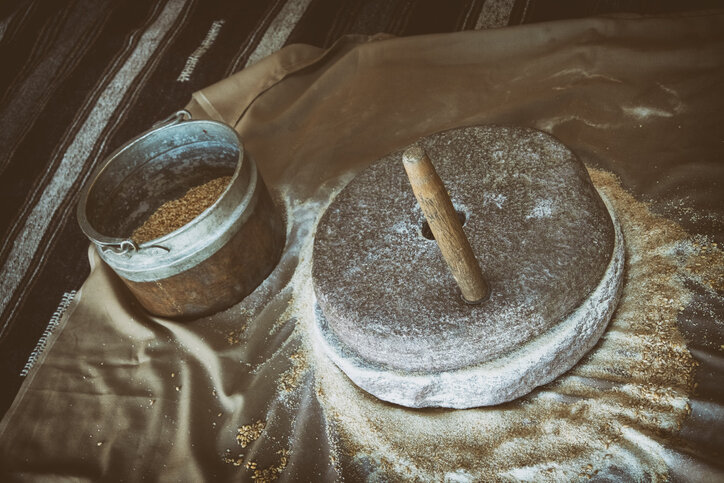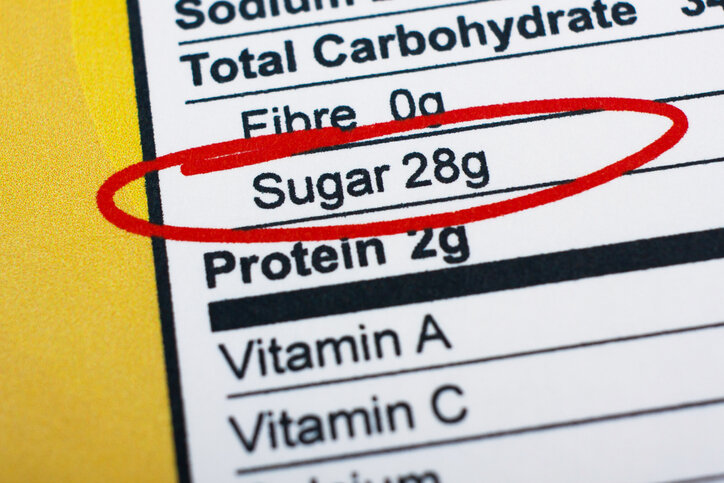What Are Processed Carbohydrates and Why We Should Avoid Them
One of my central warnings on this site is we must avoid eating processed carbohydrates to stave off disease and optimize our health. I have written about it so much that I believed everyone who reads my posts understands what they are. But after finishing a discussion about processed carbs with a patient, I realized my error when he claimed that he did not eat them, but when the appointment was over, the patient stated he was going to the bagel place next door to try out his new teeth.
I am not sure, but maybe he thought processed carbs were donuts and cake, not bagels and sandwiches. This post is dedicated to him and all who need a reminder about what processed carbohydrates are, and why they should be avoided. If you don't want to read the whole thing, skip to the end, where I tell you how to identify them and list the most common sources of processed carbs.
What Are Carbohydrates?
The foods we eat all fit into one of three categories: fat, protein, and Carbohydrate. The Merriam-Webster dictionary definition is:
"any of various neutral compounds of carbon, hydrogen, and oxygen (such as sugars, starches, and celluloses) most of which are formed by green plants and which constitute a major class of animal foods." (1) Cellulose is not digested by humans, and it is more commonly known as fiber. Since we can't digest it, it won't be included in my discussion. The rest of this post pertains to sugars and starches only.
Plant Cell Walls and Digestion
Unlike the cells of animals, plant cells have a rigid indigestible cell wall that protects the content, rendering the nutrients, including carbohydrates, inside the cell resistant to absorption by the digestive system. Some carbs are liberated during chewing, and a bit more are broken down in the small intestine; thus, slow absorption of only some of the carbs occurs.
Evolution and Carbohydrate Consumption
We evolved from herbivorous ape-like creatures. Apes eat leaves and rely on their digestion by bacteria in their gut to ferment them into fat. Somewhere along the way, we lost the part of our gut that includes the beneficial bacteria; it is known as the appendix. Hence, we are much less efficient at extracting carbs from whole plants than our ape-like ancestors. Although our digesting method is very different from other primates, we have evolutionary remnants like flat teeth and special enzymes to break down carbohydrates. One leftover is that both apes and humans evolved to eat whole plant matter that contains little carbohydrates, and, unlike apes, the little that it possesses is challenging to extract for human digestion.
We Can Survive Without Any Dietary Carbohydrate.
Dr. Ludwig and colleagues state that "Carbohydrate is the only macronutrient with no established minimum requirement. Although many populations have thrived with carbohydrates as their main source of energy, others have done so with few if any carbohydrate-containing foods throughout much of the year (eg, traditional diets of the Inuit, Laplanders, and some Native Americans)." (2) Their statement may be misleading, as maintaining blood sugar is essential for life. Carbohydrate is so essential that we have a mechanism called gluconeogenesis to keep our blood sugar level stable when not consumed.
Our Humans Ancestors Ate Much Less Carbohydrate Than Us
In a recent post of mine, I quoted Cordain, Eaton, and others who have concluded that "this high reliance on animal-based foods coupled with the relatively low carbohydrate content of wild plant foods produces universally characteristic macronutrient consumption ratios in which protein is elevated ... at the expense of carbohydrates..." (3) In our distant past, giant fatty animals were abundant, and carbohydrate-rich plants were not. The other undisputed fact is that we did very little processing of our foods, so that much of the carbohydrate content of plant-based foods remained undigested.
The Sudden Addition of Processed Carbohydrates to Our Diet
Humans have always possessed intelligence, and it has been indispensable for our survival. Our ability to find new food sources in times of starvation is nothing new. Being omnivores helps so that we can eat a wide variety of foods. The first evidence that we ate prepared grains goes back 24,000 years. It is widely held that agricultural practices did not flourish widely until 12,000 years ago. (4) The advent of relying on planting and processing grains constituted a new period in human existence called the neolithic period. Since the nutrients in plants are so difficult for humans to digest, we cleverly discovered milling, which breaks down plant cell walls and liberates the carbohydrates for more calories and rapid digestion. (5)
New Foods and New Diseases
Cardiovascular disease, metabolic syndrome, type 2 diabetes, cancer, acne vulgaris, tooth decay, crooked teeth, small jaws, and small heads became widespread when we added processed carbohydrates to our diet. To be fair, there were other changes to our lifestyles that caused disease that we simultaneously adopted, and I have written about them extensively on this site. I am sticking to processed carbs today.
We Have Had Too Little Time To Adapt to Our New Processed Carbs
The fundamental changes in the diet and lifestyles that occurred then and more recently with the beginning of the Industrial Revolution are too recent for the evolutionary time scale for meaningful adaptation. Scientists estimate that 70% of daily energy intake is provided by foods that were rarely or never consumed by our Paleolithic ancestors, including grains. (6)
What Exactly Are Processed Carbohydrates?
There are too many methods of processing carbohydrates to get into in this post. I define processed carbohydrates as any carb that has been freed from its cell wall containment. Since the remainder of the plants is discarded, they are most often densely concentrated. Juice is a prime example, even if it contains pulp. Whole wheat bread is a misnomer; it is just regular flour bread with leftover bran that has been mixed back in. For this reason, I prefer the term Dense Acellular Carbohydrate first coined by Ian Spreadbury. As I mentioned before, when the cell walls of plants are broken open, the nutrients and carbohydrates become accessible for digestion.
We are not designed to eat processed carbohydrates
Unfortunately, since our evolutionary experience with carbs has been one of scarcity, our genes are mismatched to dense acellular carb digestion. Since plants have growing seasons, we could only eat them for limited times each year. Even if there was an overabundance and we overate them, we went a whole year without them, and any biological imbalance like weight gain and inflammation would likely be corrected. With modern commerce, we now eat foods grown elsewhere all year long.
Additionally, our digestive systems were never designed for free carbohydrates that were not locked inside cells, AKA processed carbs. The result is that our digestive system is overwhelmed every time we eat processed carbs. The result has been weight gain, digestive problems, diabetes, heart disease, tooth decay, and many other diseases.
Diabetes and Blood Sugar
We can only carry about one teaspoon of sugar short-term in our bloodstream at one time before it acts in a toxic manner. Incidentally, the majority of carbs are turned into glucose, which is sugar. Believe it or not, a single bagel or muffin contains over ten teaspoons of what will become glucose in our blood only a few minutes after eating them!
Processed Carbohydrates and Our Microbiome
Our digestive system goes from the mouth all the way to our bottoms. It is inhabited by trillions of friendly germs, and we call them our microbiota. We have evolved along with them, and they also have no experience with dense acellular carbs. They readily ferment the processed carbs we eat into acids and toxins (lipopolysaccharides) and cause disease. Read more about this process in my previous post.
Read the Label: Processed Carbs Are Everywhere
Many foods like salad dressing, tomato sauce, and even coleslaw have sugar added to them. The carbohydrate is not surrounded by cell walls making it just as bad as white bread. This is a very good reason to always check labels. Beware of alternate names for sugar. High fructose corn syrup goes by many other names like isoglucose, Dahlia syrup, HFCS, etc. Also, you should be aware that "starch" is another name for processed carbs. Maltodextrin is another. Also, natural flavoring could have refined carbs in it. Sugar-free does not mean carb-free. Raw juices are a big no-no! Honey is a significant exception in nature, as it is pure sugar from a natural source. Milk is another, as it has lactose that is not held inside plant cells. Babies put to bed with bottles containing milk will have horribly decayed teeth in a short period. Many milk alternatives like almond milk, have added carbs and sugar. Processed meats can have sugar added to them; Jerky and bacon are good examples. Balsamic Vinegar surprisingly has acellular carbs in it.
List of Processed Carbohydrates
Bread made from flour of any kind
Cornbread
Gluten-free bread
Whole grain and whole wheat bread
Multigrain bread
Flatbread
Brioche
Challah
Ciabatta
Focaccia
Pita
Pumpernickel
Rye
Sourdough
Wraps
Soda
All Pasta
Milk powder
White rice
Sugar (white or raw etc.)
Breakfast cereal
Pastries
Cake
Donuts
Muffins
Energy bars
Protein bars
Breakfast bars
Churros
Potato chips
chips made from flour
Pretzels
Crackers
Tortillas
Potato chips
Mashed potatoes
Candies with sugar and flour
Soda and energy drinks with sugar
Juice, with or without pulp (even with no sugar added)
Battered foods like tempura and fish and chips
Sauces and condiments
Barbeque sauce
Jam and jelly
Ketchup
Mayonnaise
Peanut butter
Salsa
Syrup
Salad dressing (check the label)
I am sure I have left many things off of this list. If you find something I have left out, feel free to leave a comment. On a final note, I don’t expect us to never eat processed carbs. We should be aware, however, that they should be limited for those of us who want to improve our chances of staying healthy. Also, they are as addicting as nicotine and very difficult for many people to resist. I will cover that topic in an upcoming post.













